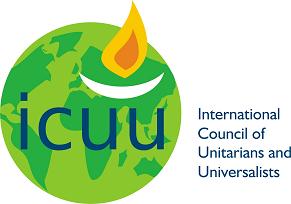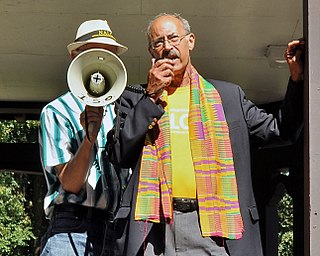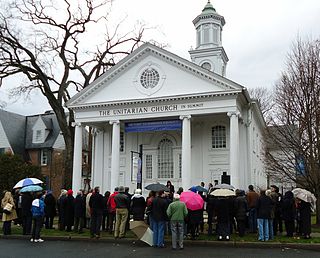
Canadian Unitarian Council (CUC) formed on May 14, 1961 to be the national organization for Canadians who belong to the Unitarian Universalist Association. Until 2002, almost all member congregations of the CUC were also members of the UUA, and most services to CUC member congregations were provided by the UUA. However, after an agreement between the CUC and the UUA, most services since 2002 have been provided by the CUC to its own member congregations, with the UUA continuing to provide ministerial settlement services. Some Canadian congregations have continued to be members of both the CUC and UUA, while others are members of only the CUC.

The International Council of Unitarians and Universalists (ICUU) is an umbrella organization founded in 1995 comprising many Unitarian, Universalist, and Unitarian Universalist organizations. Some groups represent only a few hundred people; while the largest, the Unitarian Universalist Association, had more than 160,000 members as of May 2011—including over 150,000 in the United States.

Unitarian Universalist Association (UUA) is a liberal religious association of Unitarian Universalist congregations. It was formed in 1961 by the consolidation of the American Unitarian Association and the Universalist Church of America. Both of these predecessor organizations began as Christian denominations of the Unitarian and Universalist varieties respectively. However, modern Unitarian Universalists see themselves as a separate religion with its own beliefs and affinities. They define themselves as non-creedal, and draw wisdom from various religions and philosophies, including humanism, pantheism, Christianity, Hinduism, Buddhism, Taoism, Judaism, Islam, and Earth-centered spirituality. Thus, the UUA is a syncretistic religious group with liberal leanings.

Unitarian Universalism (UU) is a liberal religion characterized by a "free and responsible search for truth and meaning". Unitarian Universalists assert no creed, but instead are unified by their shared search for spiritual growth, guided by a dynamic, "living tradition". Currently, these traditions are summarized by the Six Sources and Seven Principles of Unitarian Universalism, documents recognized by all congregations who choose to be a part of the Unitarian Universalist Association. These documents are 'living', meaning always open for revisiting and reworking. Unitarian Universalist (U.U.) congregations include many atheists, agnostics, and theists within their membership—and there are U.U. churches, fellowships, congregations, and societies around the world. The roots of Unitarian Universalism lie in liberal Christianity, specifically unitarianism and universalism. Unitarian Universalists state that from these traditions comes a deep regard for intellectual freedom and inclusive love. Congregations and members seek inspiration and derive insight from all major world religions.
Unitarianism is a nontrinitarian Christian theological movement that believes that the God in Christianity is one singular entity, as opposed to a Trinity. Most other branches of Christianity define God as one being in three persons: the Father, Son, and Holy Spirit. Unitarian Christians believe that Jesus was inspired by God in his moral teachings, and he is a savior, but he was not a deity or God incarnate.

The Covenant of Unitarian Universalist Pagans (CUUPS) is an association of Unitarian Universalists who identify with the precepts of classical or contemporary Paganism: celebrating the sacred circle of life and guiding people to live in harmony with the rhythms of nature. CUUPS members foster the development of "liturgical materials based on earth- and nature-centered religious and spiritual perspectives" as well as encourage "greater use of music, dance, visual arts, poetry, story, and creative ritual in Unitarian Universalist worship and celebration."

A variety of religious emblems programs are used by the Boy Scouts of America (BSA) to encourage youth to learn about their faith and to recognize adults who provide significant service to youth in a religious environment. These religious programs are created, administered and awarded by the various religious groups, not the BSA, but each program must be recognized by the BSA.
The Unitarian Universalist Buddhist Fellowship (UUBF) is a "Related Organization" to the Unitarian Universalist Association (UUA). Formed in the early 1990s, the UUBF exists to facilitate dialogue among UU Buddhists and other UUs interested in Buddhism and its practices. It is open to all Unitarian Universalists who are Buddhists of any tradition or who are interested in learning more about Buddhism. The UUBF publishes a newsletter, the UU Sangha, and posts back issues in an archive on its website. The website also has a list of UU Buddhist and meditation groups and contact information. Instructions for joining the UUBF Listserv are there also. Each year there is a UUBF booth in the exhibit hall at UUA General Assembly. Every other year, in odd years, the UUBF holds a Convocation.

Liberal Religious Youth (LRY) was an autonomous, North American youth organization affiliated with the Unitarian Universalist Association (UUA). LRY was unique as a church youth group in that it was governed solely by its members, who were generally between the ages of fourteen and nineteen years old, with adults serving only in an advisory capacity. Though partial funding and office space were provided by the UUA, primary funding was through an independent endowment, the investment of which was controlled by the LRY board of directors.

The Rev. William G. Sinkford is a Unitarian Universalist minister who served as the seventh president of the Unitarian Universalist Association of Congregations (UUA), from 2001 to 2009. His installation as UUA president made him the first African American to lead that organization, or any traditionally white religious denomination in the United States.

Unitarian Universalism, the Unitarian Universalist Association (UUA), and the Canadian Unitarian Council (CUC) have a longstanding tradition of welcoming LGBTQ people.
Skinner House Books is a book publisher run by the Unitarian Universalist Association (UUA), specializing in books for Unitarian Universalists—meditation manuals, worship and church resources, and books on theology, UU history, and social justice concerns. The editorial direction of Skinner House is provided by the Skinner House Board, a body of UUA staff and non-staff.

Religion in Scouting and Guiding is an aspect of the Scout method that has been practiced differently and given different interpretations over the years.

Universalist National Memorial Church (UNMC) is a Unitarian Universalist church located at 1810 16th Street, Northwest in the Dupont Circle vicinage of Washington, D.C.. Theologically, the church describes itself as "both liberal Christian and Universalist". Originally a member of the Universalist Church of America, it became a member of the Unitarian Universalist Association in 1961 when the former merged with the American Unitarian Association to form the UUA, and in 2003, UNMC strengthened its ties to the UUA.
Young Religious Unitarian Universalists (YRUU) is a term used within the Unitarian Universalist Association (UUA) in the United States and formerly the Canadian Unitarian Council. YRUU was an organization at the continental level primarily run by youth, ranging in age from 14 to 20, with mentoring adult partners. The continental organization of YRUU ended in 2008, but the term is still used by certain active youth groups and conferences at the congregational and district levels.
Peter Morales is the former president of the Unitarian Universalist Association. Morales was the UUA's first Latino president. In the early 2000s, he was the senior minister of the Jefferson Unitarian Church in Jefferson County, Colorado, a rapidly growing Unitarian Universalist congregation in the northwestern Denver-Aurora Metropolitan Area. He also worked for the UUA from 2002 to 2004. In 2008, he announced his candidacy for president, and in 2009 he was elected. As the result of a controversy regarding the UUA's hiring practices and charges of institutional racism, Morales resigned as president in 2017, three months before the end of the term.
First Unitarian Church of Los Angeles is an independent congregation affiliated with the Unitarian Universalist Association of Congregations. Since its founding in 1877 the church has been a leader in social justice activism for the Unitarian Universalist faith, and for the city of Los Angeles. Its embrace of progressive causes and sometimes radical politics have earned it a reputation as both a place of controversy and a beacon of justice. Its affiliated organization, Urban Partners Los Angeles, provides numerous programs in the neighborhood around the church.
The Eno River Unitarian Universalist Fellowship (ERUUF) is a Unitarian Universalist (UU) congregation located in Durham, North Carolina. In 2018, over seven hundred people were members of ERUUF, making it the largest UU congregation in NC and one of the largest in the UUA. It sponsors the UU campus ministry program at Duke University, Unitarian Universalist Fellowship @ Duke.
Unitarian Universalists for Polyamory Awareness (UUPA) is an independent organization of Unitarian Universalists seeking to promote greater understanding and acceptance of polyamory within the Unitarian Universalist Association and its member congregations.










